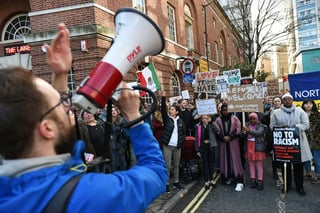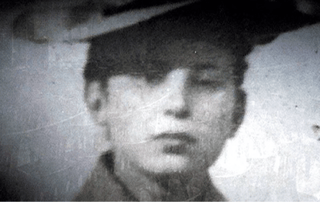Announcing “Earth, Climate, Dreams”—the BOOK! 13 in-depth conversations with Depth Psychologists on how we address these critical topics in the Age of the Anthropocene.
Contributors include Jungian analyst Jerome Bernstein; climate scientist and Jungian, Jeffrey Kiehl; Jungian scholar, Susan Rowland; Depth educator/author Robert Romanyshyn; Depth educator Veronica Goodchild; plus other scholars, educators, or Jungian analysts including Steve Aizenstat, Sally Gillespie, Susannah Benson, Nancy Furlotti, Michael Conforti —co-edited by Jon Marshall and Bonnie Bright
ORDER NOW as a Kindle book or a print paperback
DOWNLOAD A FLYER FOR Earth-Climate-Dreams
ABOUT THE BOOK
Over time, humans in western cultures have undergone a profound restructuring of the psyche resulting in a traumatic sense of separation. In modern day, we face a growing set of challenges on ecological and social fronts, in part due to the significant impact of human activity on the planet, an era now informally called the Anthropocene.
If humans are going to deal with climate change, ecological destruction, and the recognition of an age in which humans are changing the very structures of our world, then we need both social and psychological change.
This crisis requires that we reflect on our situation from a depth psychological perspective, contemplating how we might tap into the underlying archetypal themes at work in the culture and begin to articulate them in ways that inspire and move us to personal and collective action.
Indeed, without some understanding of our psychological processes and our unconscious dynamics, it is unlikely that any social change we can generate will solve the problems we face. Our psychological drives will continue the crisis.
Yet, in this book, Jungian analysts, therapists, and academics with an interest in Depth Psychology discuss their approaches to these problems with Bonnie Bright, Ph.D., a certified transpersonal coach and the Founder of Depth Psychology Alliance, with hope and inspiration. Together, they contemplate psychological issues of ecological collapse, our conceptual separation from nature, the cultural complexes that drive us, and the importance of attending various Jungian, depth, and transpersonal modalities—including our dreams—for engaging with what may well be the challenge of our age and of ages to come.
ORDER NOW as a Kindle book or a print paperback
Facing Climate Change through a Jungian Lens
Jeffrey Kiehl in Dialogue with Bonnie Bright
Dionysus: Revisioning Psychology and Literature in Jung and Hillman
Susan Rowland in Dialogue with Bonnie Bright
Dreams and the Animated Earth
Stephen Aizenstat in Dialogue with Bonnie Bright
Navigating the Great Transition
Susannah Benson in Dialogue with Bonnie Bright
Dominion Psyche, Reciprocity Psyche, Borderland Consciousness
Jerome Bernstein in Dialogue with Bonnie Bright
We Need to Talk about Climate Change,
with Depth
Sally Gillespie in Dialogue with Bonnie Bright
The Frankenstein Prophecies: The Untold Tale
Robert Romanyshyn in Dialogue with Bonnie Bright
The Human Soul in Transition at the Dawn
of a New Era
Erel Shalit in Dialogue with Bonnie Bright
The Role of Primary Narcissism in the Ecological Crisis
Michael Conforti in Dialogue with Bonnie Bright
Complexity, Depth Ecology and Climate Change
Jonathan Marshall in Dialogue with Bonnie Bright
Dreams, Synchronicities and our Relationship
to the Earth
Veronica Goodchild in Dialogue with Bonnie Bright
Revisiting the Well at the Dawn of Life: Teachings of the Maya
Nancy Swift Furlotti in Dialogue with Bonnie Bright
Culture Collapse Disorder: What the Bees
Can Teach Us
Bonnie Bright Interviewed by Jonathan Marshall
Multi-logue on the Cultural Complex of the English-Speaking West
Group Discussion
PRAISE FOR EARTH, CLIMATE, DREAMS
Depth psychologist Bonnie Bright and her colleagues help us understand that climate change is not just an environmental, economic, social or security challenge - although it is all of these - but a deeply psychological crisis that demands “a new psychological position and understanding.” A must-read for anyone wanting to better understand why we’re in our current mess and how to get out of it!”
—Linda Buzzell, Co-Editor, Ecotherapy: Healing with Nature in Mind
These interviews are, at one level, a fine tribute to Jung’s vision that the human psyche cannot be considered in isolation from the wider forces that govern life on Earth. But Bonnie Bright’s collection of dialogues also has a far more urgent relevance: the Anthropocene has now been unleashed and it remains an open question whether we can act in time to maintain a habitable planet. The answer will lie in a myriad of policy and behavioural decisions and underlying them all is the need for humankind to transform its notions of self-interest in the light of Earth consciousness. The interviews in this book are both signposts and beacons in that all-important journey.
—Adrian Tait, Co-Founder, Climate Psychology Alliance
Dreams open a portal to another way of seeing the world, offering access to the personal and collective unconscious. Dreams encourage the imagination to flourish. Sometimes, dreams can offer another way to approach seemingly insoluble problems. So this anthology arrives at the perfect moment, offering insights and inspiration in this time of climate chaos and global crisis, with contributions from leading thinkers in the field of depth psychology, science and education.
—Mary-Jayne Rust, Co-Editor, Vital Signs: Psychological Responses to Ecological Crisis
“This work provides a unique perspective on the issue of climate disruption. Science has provided us with all the evidence necessary for immediate action, yet too little is being done too slowly to address this global threat. As Jung noted, in such times of deep disarray, perhaps we should ask the unconscious what to do. The dialogues in this work do just that. Here we are given an opportunity to listen to psyche’s concerns about our planet.”
—Jeffrey T. Kiehl. Climate Scientist, Jungian Analyst, Author of Facing Climate Change: An Integrated Path to the Future
PUBLICATION DATA
Earth, Climate, Dreams: Dialogues with Depth Psychologists in the Age of the Anthropocene—A collection of interviews with Jungian analysts, psychotherapists, scientists, educators, and scholars in conversation with Bonnie Bright, Ph.D., edited by Bonnie Bright and Jonathan Paul Marshall. Published July 10, 2019, by Depth Insights; $14.95 trade paperback (ISBN#978-0-9979550-2-6), 450 pages; $9.99 Kindle. Available on Amazon.com.






